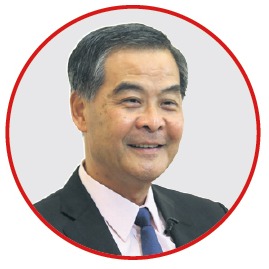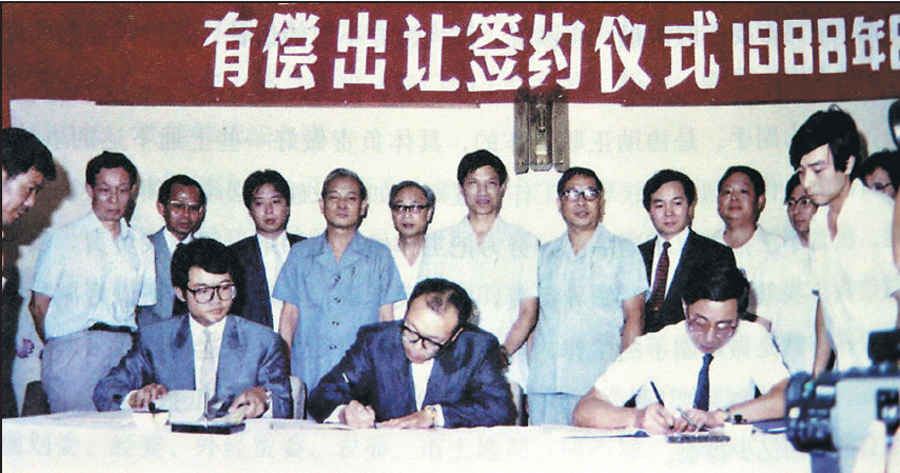
August 12, 1954, Hong Kong
EDUCATION:
1974-77: Bristol Polytechnic (now the University of the West of England), major in valuation and estate management
CAREER:
1983: Partner at Jones Lang LaSalle; president of the Hong Kong Institute of Surveyors; consultant to the steering group for Shanghai Pudong development; consultant to the steering group for Shanghai land-use reform; consultant to the steering group for Shenzhen land-use reform
1988: Secretary-general of the Basic Law Consultative Committee
1992: Hong Kong affairs consultant to the State Council's Hong Kong and Macao Affairs Office and Xinhua News Agency's Hong Kong branch
1993: Member of the Preparatory Committee for the Hong Kong Special Administrative Region
1996: Lawmaker of the Provisional Legislative Council
1997-2011: Executive Council convener for three consecutive terms
2012-17: Hong Kong SAR chief executive
2017-present: Vice-chairman of the National Committee of the Chinese People's Political Consultative Conference
Hong Kong's changing role in China's transformation

Looking forward
Leung, now vice-chairman of the National Committee of the Chinese People's Political Consultative Conference-the country's top political advisory body-still actively responds to the country's call for a deepening of reform and opening-up.
Besides organizing events in Hong Kong reviewing the achievements gained through the past 40 years under the policy, Leung places equal weight on the Belt and Road Initiative. He sees the Belt and Road as the natural extension of the reform and opening-up policy, opening a new era.
"The Belt and Road Initiative emphasizes cooperation," he said. "We go out. We welcome friends from abroad to come in. That requires an open market that can be achieved through progressive reform."
Under the program initiated by Deng four decades ago, mainland cities like Shenzhen and Shanghai have seen robust development. Shenzhen's GDP exceeded Hong Kong's last year, while Shanghai is on course to become a global financial center in 2020.
"Hong Kong is facing challenges. The challenges lie in whether it can make timely adjustments to meet the country's development needs," Leung said. "The special administrative region should be well-informed about what the country needs from it and pick up roles that best suit the country's development."
Leung added that assisting the internationalization of the yuan and contributing to healthy financial development are two possible options for Hong Kong.
"But I am upbeat about Hong Kong's future performance in the country's reform and opening-up," he said. "After all, it managed to reap fruits during its role transformation in the past 40 years."
Throughout his participation in the country's journey to become more open and inclusive, Leung has been a keen follower and an earnest promoter. He remains on that path, making Hong Kong a contributor to, and a beneficiary of, reform and opening-up-a mission he will carry on steadily and firmly.


